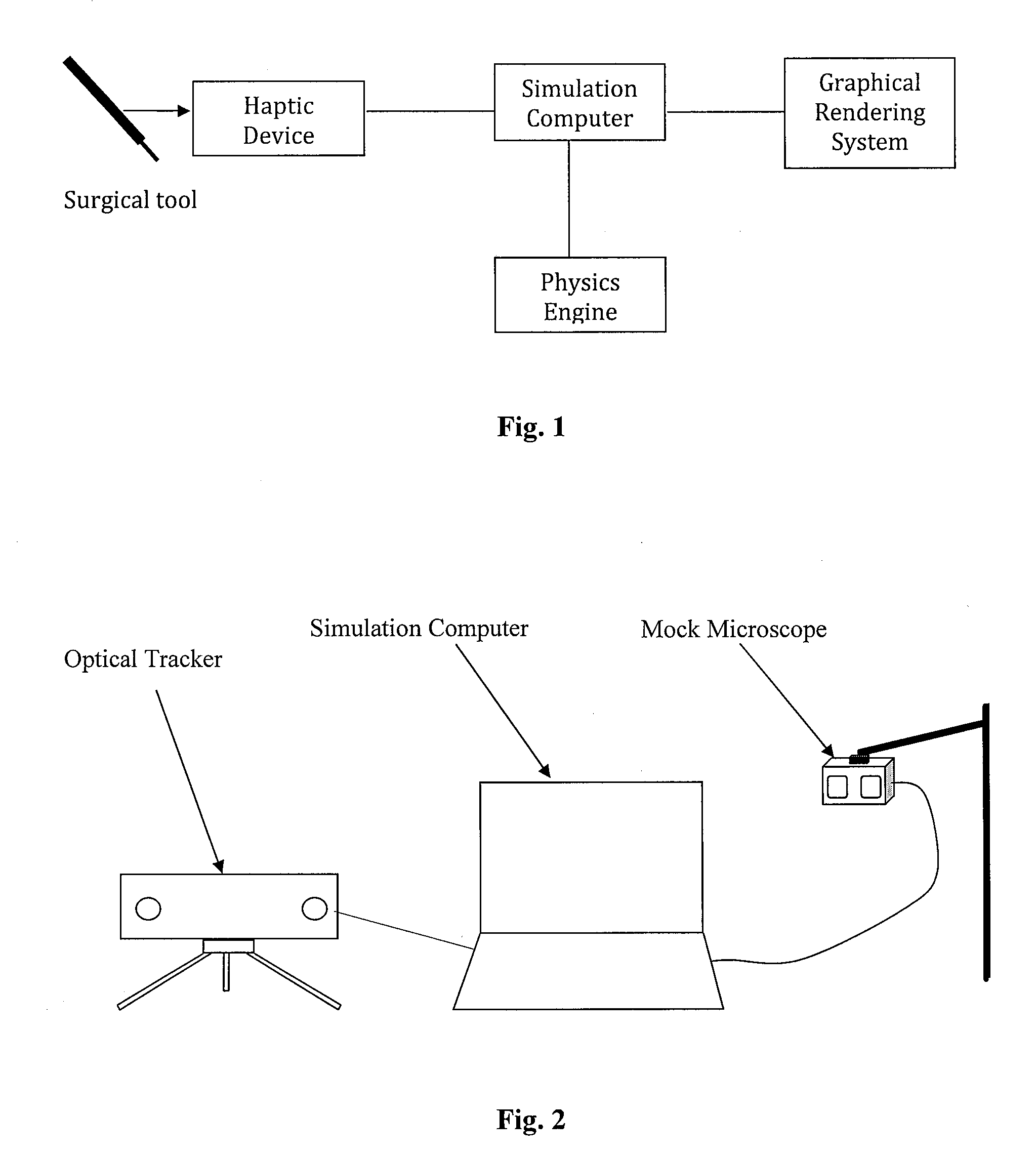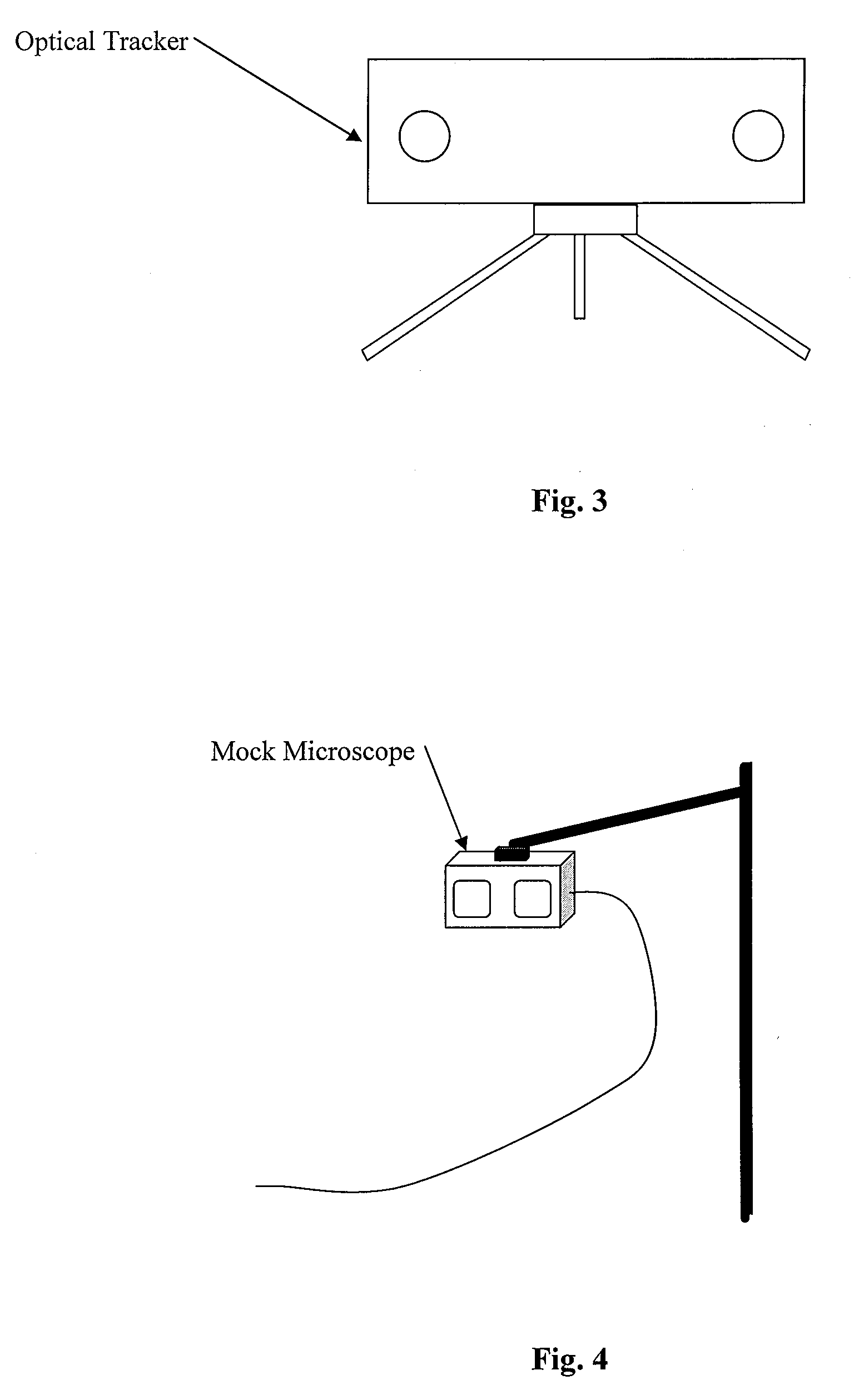System, Method and Computer Program for Virtual Reality Simulation for Medical Procedure Skills Training
a virtual reality and surgical technique technology, applied in educational models, instruments, educational appliances, etc., can solve the problems of many new surgeons not having the motor skills necessary, live patient permanent injury, limited patient experience, etc., and achieve the effect of improving the user's manipulation accuracy
- Summary
- Abstract
- Description
- Claims
- Application Information
AI Technical Summary
Benefits of technology
Problems solved by technology
Method used
Image
Examples
Embodiment Construction
[0033]The present invention discloses a system, method and computer program for virtual reality simulation for screening, medical procedure skills training, and medical procedural certification. The present invention may be used, for example, to evaluate applicants before allowing them to join medical residency programs; suggest to applicants not having the required hand-eye coordination for performing medical procedures under a microscope to choose alternative medical specialties; train residents without jeopardizing the safety of the patient; record and review the performance of the trainee by senior surgeons and other senior physicians; and / or occasionally certify the skills of practicing surgeons and physicians in the otolaryngology departments. The present invention may be used to simulate a surgery or a non-surgical medical procedure.
[0034]Examples that implement the system of the present invention include, but are not limited to, simulations of myringotomy, otoscopy, tympanop...
PUM
 Login to View More
Login to View More Abstract
Description
Claims
Application Information
 Login to View More
Login to View More - R&D
- Intellectual Property
- Life Sciences
- Materials
- Tech Scout
- Unparalleled Data Quality
- Higher Quality Content
- 60% Fewer Hallucinations
Browse by: Latest US Patents, China's latest patents, Technical Efficacy Thesaurus, Application Domain, Technology Topic, Popular Technical Reports.
© 2025 PatSnap. All rights reserved.Legal|Privacy policy|Modern Slavery Act Transparency Statement|Sitemap|About US| Contact US: help@patsnap.com



